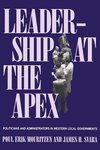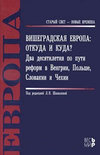
-
 Anglický jazyk
Anglický jazyk
American Neutrality in the 20th Century
Autor: John N. Petrie
This work began with a paper written in the spring of 1982 as a student at the College of Command and Staff at the Naval War College. My professional and personal interest in the Laws of War and Neutrality were nurtured throughout those studies and grew... Viac o knihe
Na objednávku
19.35 €
bežná cena: 21.50 €
O knihe
This work began with a paper written in the spring of 1982 as a student at the College of Command and Staff at the Naval War College. My professional and personal interest in the Laws of War and Neutrality were nurtured throughout those studies and grew during master's and doctoral work at the Fletcher School of Law and Diplomacy. Each international crisis since has confirmed my belief that a more thorough consideration of this body of law could better inform policy makers.
The chronology that follows demonstrates that the United States found the requirements of strict neutrality less than useful for fulfilling its policy imperatives throughout the 20th century. The reasons for this are varied, but all involve departures from the strict impartiality required of neutrals. The common thread running through them is that global interests make impartiality difficult to maintain and often counterproductive. It also becomes clear that this will continue for the future.
Although the incidents explored stretch back over 100 years, history is not its focus. Incidents are cited only to show their relationship to the pattern of U.S. behavior, historical details are not elaborated. Further, incidents are looked at in the context of what was known at the time, without the benefit of hindsight. The loss of the battleship MAINE, for example, is now believed to have resulted from an accident; at the time it was believed to have been an attack.
The detailed behavior of other nations was also not examined except in response to that of the United States, because while tiffs work is about international law, it is for the U.S. naval force and unit commanders who must understand that law. My personal knowledge of and involvement in highly sensitive U.S. policy implementation in Central America and Panama in the mid-1980s requires that those examples not be treated. This exclusion does not detract from the product and removes even the question of whether classified material was used in any way in the preparation of this work.
Our grandfathers had to make decisions with much less information and, like today, the initial reports were sometimes flawed. In some ways, therefore, the imperfections obvious in the contemporary accounts recorded in newspapers provide a better context than the more thorough and better informed historical accounts. In other places, historians' work is used extensively to document the details of incidents. This is especially true for the period immediately preceding World War II because so many significant examples occurred then.
With a focus on identifying a pattern of departures from the strict impartiality of neutrality, the account that follows resists, as much as possible, the temptation to explore other fascinating aspects of the incidents dealt with.
CONTENTS:
Acknowledgments
Preface
Introduction
Assumptions and Considerations
The Law of Neutrality and Relative Combat Power
Definitions and Clarifications
Neutrality in the Modern World
Neutrality and Civil War
The Change
The Beginning
The Spanish-American War
The Change Is Understood
The Mexican Revolution
Avoiding World War I
The Interwar Period
The More Things Change
The League of Nations
The Havana Convention on Maritime Neutrality
The Kellogg-Briand Pact
An Isolationist United States
The Fruits of Isolationism
Backing into War
The Price of Violent Peace
Enter the United Nations
Recreating the Wheel of Peace
The Charter
Exploitation and Escalation
Postwar "Peace"
Unequals in the Postwar World
Still in Force
The Suez Crisis
Justice at the Expense of Peace?
The Nixon Doctrine
The 1971 Indo-Pakistani War
The Bloody Lebanese "Peace"
The War Powers Resolution
Other Cases
Perspective
Historical Assessment
The Future
The Role of Naval Diplomacy
Does the Law Foster Peace with Justice?
Prescription
Summary
Conclusion
About the Author
- Vydavateľstvo: University Press of the Pacific
- Rok vydania: 2004
- Formát: Paperback
- Rozmer: 216 x 140 mm
- Jazyk: Anglický jazyk
- ISBN: 9781410218490







 Nemecký jazyk
Nemecký jazyk 
 Ruský jazyk
Ruský jazyk 



